U.S. Steel and the Forging of Trade Policy
If something is running amok in the United States trade policy, it sure doesn’t look like protectionism.
Joe Biden’s recent thumbs down on the Nippon-U.S. Steel marriage was met with the predictable shrieks of protectionism from self-styled free-market pundits. Michael Strain, ensconced at the American Enterprise Institute, sounded the alarm in the Financial Times, claiming protectionism is “running amok” in the U.S.
That op-ed was singled out for approval by the People’s Daily, the official newspaper of the Central Committee of the Chinese Communist Party.
“Biden’s intervention in a single deal is itself a threat to economic liberty, the article said, adding that in a free society, the government should not attempt to blow up voluntary transactions between private parties,” the People’s Daily explained.
Note that when the People’s Daily starts nodding along and muttering about our economic liberty, it’s probably a sign that you have veered off in the wrong direction.
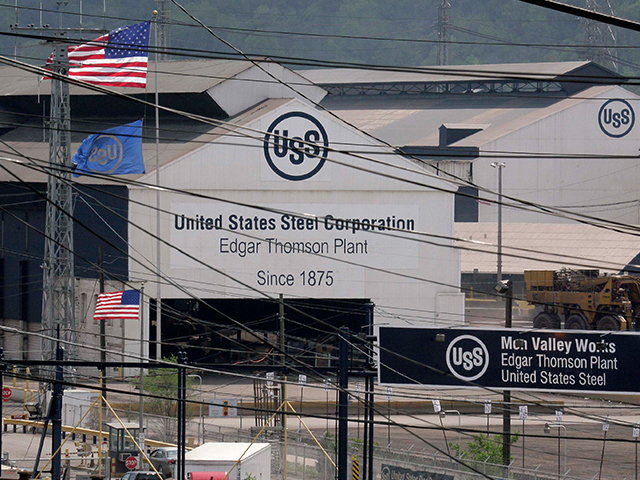
The United States Steel Corporation’s Edgar Thomson Plant in Braddock, Pennsylvania, as seen on April 28, 2009. (AP Photo/Gene J. Puskar)
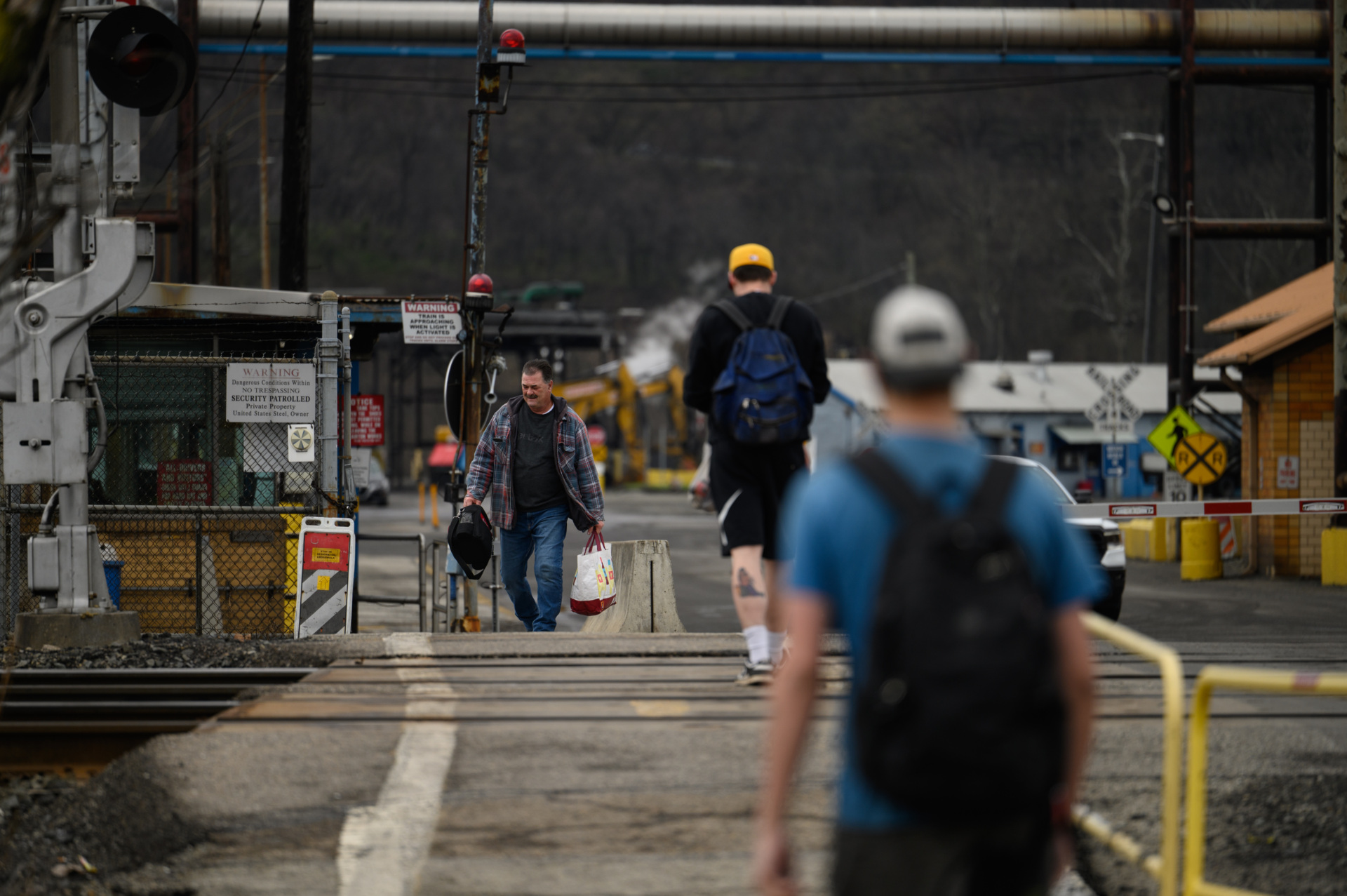
Workers leave the United States Steel Corp. Clairton Coke Works facility during a shift change in Clairton, Pennsylvania, on Friday, March 15, 2024. Nippon Steel Corp. said it’s determined to complete its $14.1 billion acquisition of United States Steel Corp. (Justin Merriman/Bloomberg via Getty Images)
Those backing the steel deal are quick to slap opposition with the “protectionism” label, but that’s a word historically reserved for domestic big fish wanting to keep the international minnows out of their pond, padding their profits by hiding behind the shield of “saving American jobs.” In this case, it’s a peculiar reversal—U.S. Steel is trying to sell the farm, not fence it off. If we’re concerned about businesses twisting policy for anti-competitive gains, our antennas should be up right now.
U.S. Steel Doesn’t Need Japanese Capital or Technology
So, what are the supposed benefits of selling to Nippon Steel?
“Nippon’s acquisition of US Steel would benefit the economy broadly and the working class specifically,” Strain writes “The company intends to inject much-needed technology and capital into US Steel. This would raise the productivity of its workers, putting upward pressure on their wages and incomes, and potentially increasing employment opportunities and steel output.”
This does not make sense. The U.S. is not some small backwater economy in need of a jolt of foreign capital or technology. If there are investments that can improve productivity of U.S. Steel’s workers, those can be expected to be made by domestic sources of capital.
The fact that there are no non-illusory, publicly identifiable benefits to Nippon Steel’s ownership of U.S. Steel, either to the company or the broader U.S. economy, suggests that something more underhanded is occurring. The most likely candidate is that the acquisition is designed to benefit Japan’s manufacturing sector at the expense of the domestic U.S. manufacturing sector perhaps by blurring the lines between what is a U.S. company and what is a foreign company.
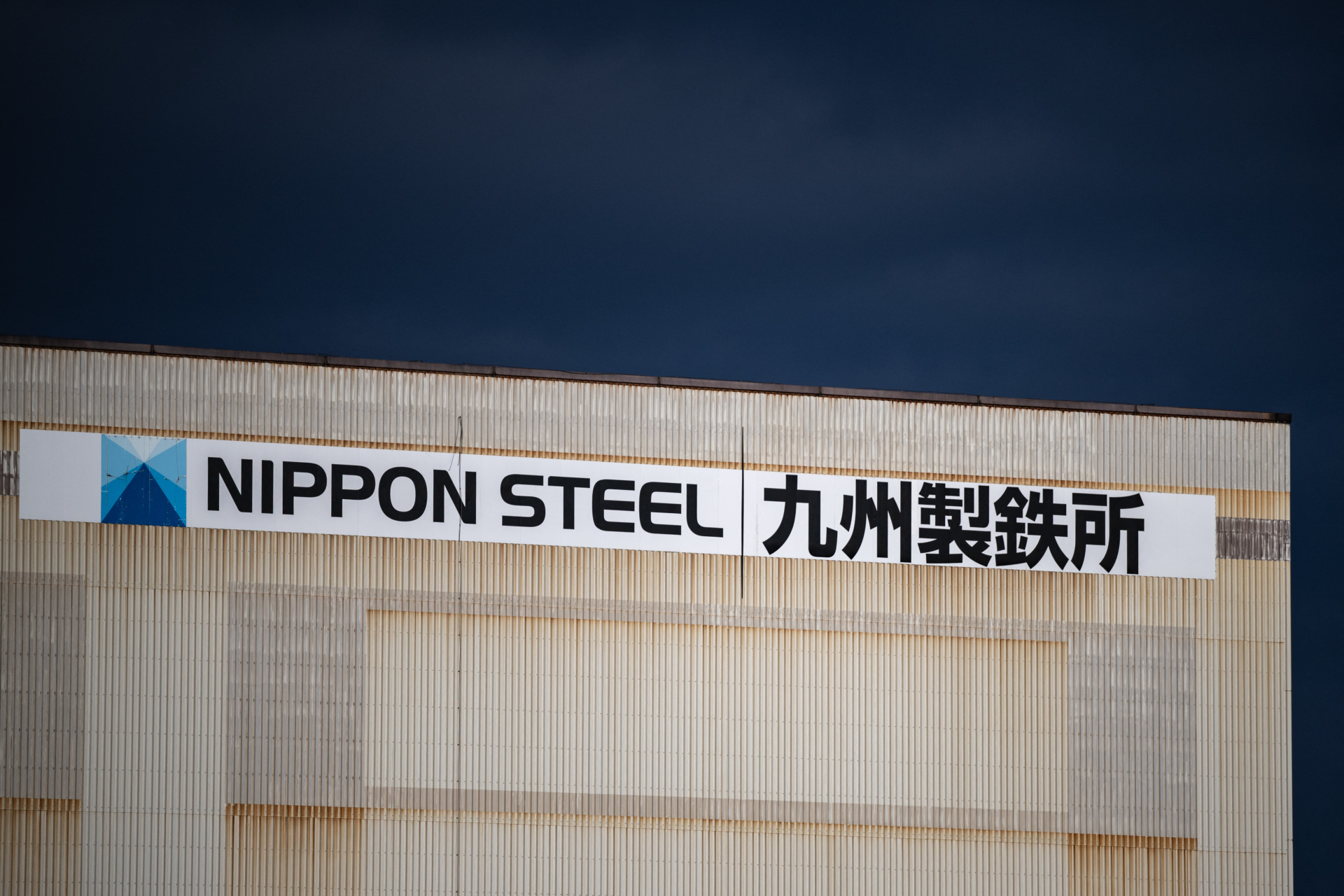
The Nippon Steel Corp’s logo is seen at the company’s Kyushu manufacturing base in Kitakyushu, Japan, on February 16, 2024. (PHILIP FONG/AFP via Getty Images)
The Free Trade Masquerade
Here’s where free trade theory skids into the mud. It argues that society wins big while only a few inefficient producers lose out. In reverse, it suggests trade barriers are a cost spread thinly across the populace, with benefits for a select few.
Yet, by that logic, one would expect a fortress America, protected by high trade walls built by special interests. But that’s not the scene. The “free traders,” often wearing the garb of public benefactors, may very well be the real special interest wolves, reaping concentrated benefits while the costs scatter like dandelion seeds in the wind.
What goes under the banner of free trade is actually a special interest trade policy. The real protectionists—meaning, special interests looking to protect their profits at the expense of the rest of the economy— are the self-styled free traders.
More broadly, the U.S. economy is anything but a protectionist economy, as understood in the traditional sense.
“Protectionist economies are those in which manufacturing is subsidized through direct and indirect transfers from the household sector,” Michael Pettis, a professor of finance at Peking University’s Guanghua School of Management and co-author of Trade Wars are Class Wars, explained in a recent post on X.
Basically, a protectionist policy holds down domestic consumption by keeping out imports and sending domestic production abroad. This benefits the bottom line of the domestic producers partially at the expense of the household sector, just as the free traders claim. But the household sector also benefits from the additional income created by exports.
Of course, nothing is free. Someone has to pay for the subsidies. In a protectionist economy, Pettis points out, the costs of these subsidies are externalized in the form of persistent trade surpluses, with the result being that protectionist countries have weak domestic demand and a high manufacturing share of gross domestic product.
That’s obviously not the case in the United States. Manufacturing accounts for just 11 percent of GDP, far lower than the 17 percent of global GDP, according to Pettis’ calculations. Domestic demand is extremely strong, and we run a persistent trade deficit with the rest of the world. We do not have a protectionist policy, amok or otherwise. We are the enablers of protectionist policies of our trading “partners.”
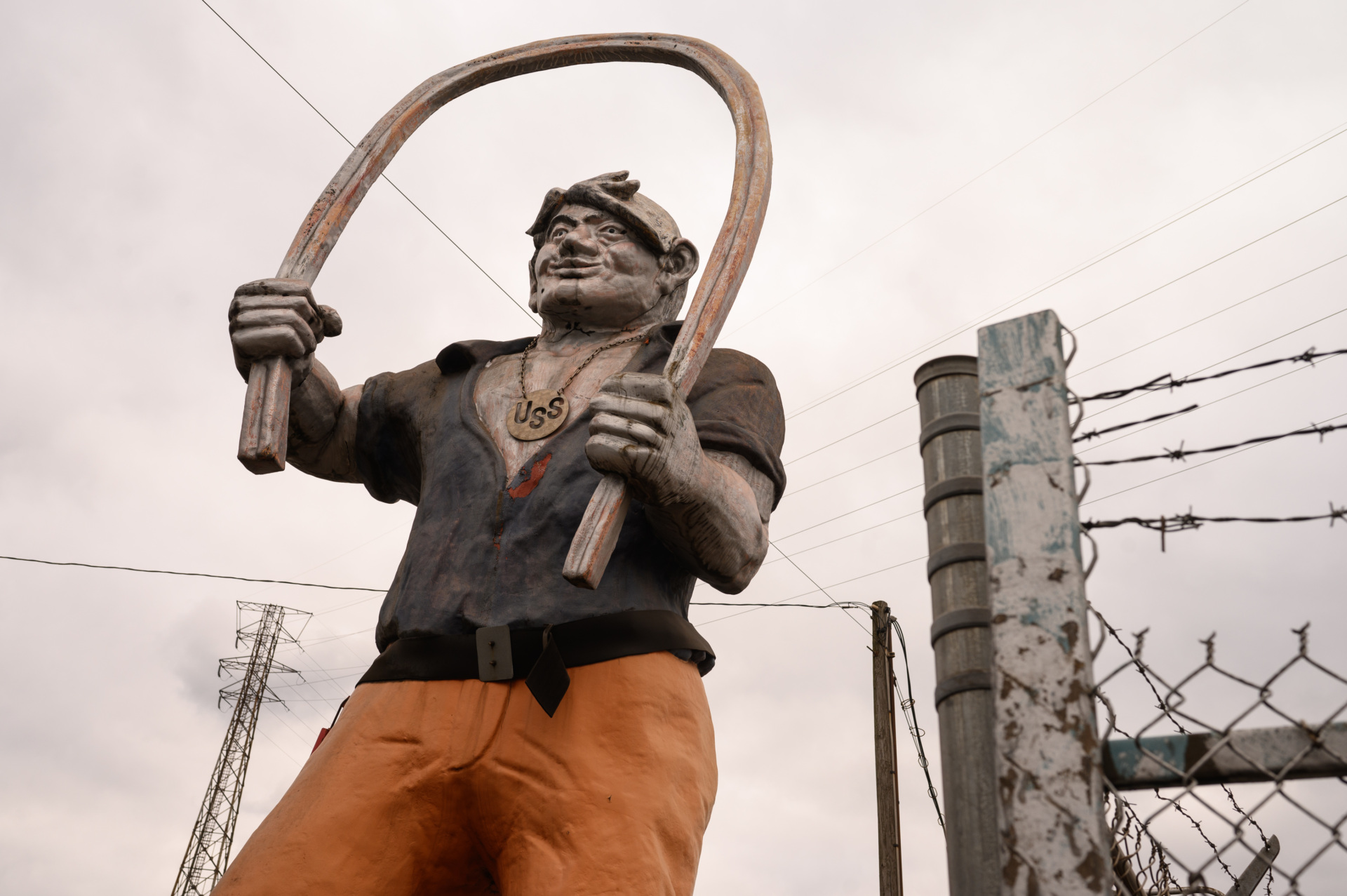
A statue of American steelworker folk hero Joe Magarac is seen in front of the United States Steel Corp. Edgar Thomson Works steel mill in Braddock, Pennsylvania, on Tuesday, Dec. 19, 2023. (Justin Merriman/Bloomberg via Getty Images
In other words, our economy is shaped by protectionism and trade policies—just not ones set by our government. Our economy is forced to adjust to the trade policies of Tokyo, Beijing, or Frankfurt that are designed to subsidize their semiconductor, electric vehicle, consumer electronics, or other industries. We’re a policy-taker rather than a policymaker nation.
“That’s because in a globalized world, savings and investment, demand and supply, and surpluses and deficits always balance, so that trade and industrial policies that create distortions in one economy must also create the opposite distortions among their trading partners,” Pettis writes.
The crux of the matter is whether the stars and stripes will be the master of its own economic destiny, charting its course with the compass of American ingenuity, or if it will drift, rudderless, buffeted by the economic eddies and currents crafted by its trading partners with surplus-laden coffers.
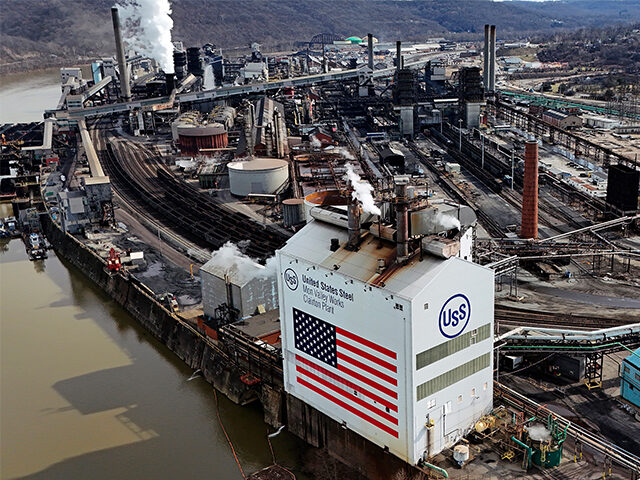
COMMENTS
Please let us know if you're having issues with commenting.